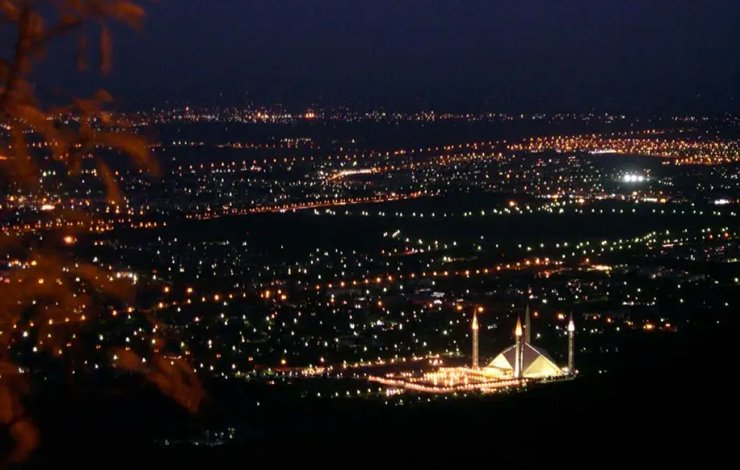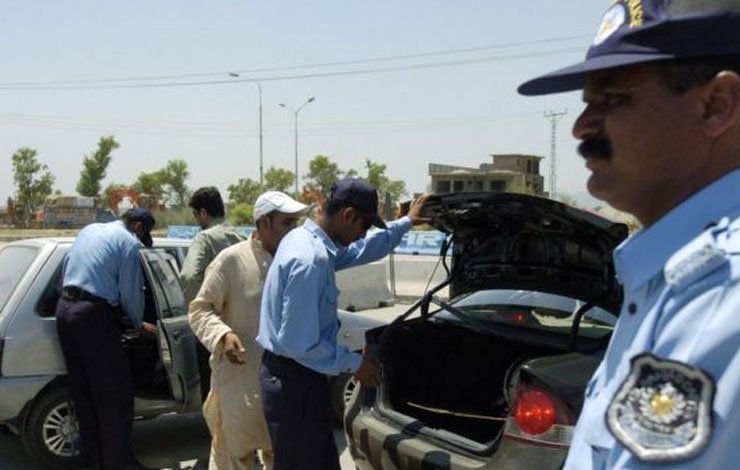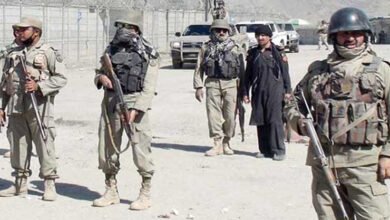Rising terror threats: Foreign countries issue security alerts for citizens in Pakistan
After a series of terrorist attacks, the embassies of foreign countries issued 'security alerts' for their citizens in Pakistan.

After a series of terrorist attacks including suicide, IED and grenade blasts in different parts of the country, the embassies of foreign countries issued ‘security alerts’ for their citizens in Pakistan.
A new wave of terrorism hit different parts of Pakistan including Balochistan province and Khyber Pakhtunkhwa (KP) areas bordering Afghanistan, increasing security threats to local and foreign citizens.
Islamabad police put security at high alert following the suicide blast in the I-10 area.
The United States (US) Embassy in Islamabad issued a security alert on December 23 after a suicide explosion in the federal capital’s I-10 area in which one policeman was martyred and others sustained wounds.
The US embassy’s press release stated, “Following the December 23 explosion in the I-10 area of Islamabad, U.S. citizens are reminded that planned attacks and criminal activity often occur in crowded public locations such as markets, shopping malls, hotels, airports, clubs, restaurants, places of worship, transportation hubs, schools, and other areas where people tend to gather. Public events, such as demonstrations and celebratory gatherings are also at a higher risk for violence.”
The US Embassy also advised its citizens “to exercise vigilance at events and places of worship and avoid locations with large crowds, review your personal security plans, carry identification and follow requests from law enforcement, be aware of your surroundings and monitor local media for updates.”
In another security alert issued on December 25, the embassy stated, “U.S. government staff prohibited from visiting Islamabad’s Marriott Hotel due to possible attack.”
“The U.S. government is aware of information that unknown individuals are possibly plotting to attack Americans at the Marriott Hotel in Islamabad sometime during the holidays. Effective immediately, the Embassy in Islamabad is prohibiting all American staff from visiting Islamabad’s Marriott Hotel. Furthermore, as Islamabad has been placed on a Red Alert citing security concerns while banning all public gatherings, the embassy is urging all Mission personnel to refrain from non-essential, unofficial travel in Islamabad throughout the holiday season,” it added.
On Monday, Saudi Arabia and Australia advised Pakistan citizens to be cautious and limit their movement amid rising terror threats.
The Saudi Arabian embassy in Islamabad issued a security alert for its citizens, advising them to remain “careful and limit their movement”.
#تنبيه pic.twitter.com/6A7Q7z3lAl
— السفارة في باكستان – سعودی سفارت خانہ (@KSAembassyPK) December 26, 2022
Meanwhile, Australia updated its travel advisory for Pakistan.
The Australian High Commission’s travel advisory read, “On 25 December 2022, the US Government warned its citizens of information that unknown individuals are possibly planning an attack at the Marriott Hotel in Islamabad during the holidays. Heightened security arrangements are in place and public events have been banned. Australian officials in Islamabad have been advised to increase vigilance and limit travel within the city. You should exercise heightened vigilance and monitor the media for latest updates.”
It added, “Reconsider your need to travel to Pakistan overall due to the volatile security situation and high threat of terrorist attack, kidnapping and violence. Higher levels apply in some areas.”
Read our travel advice for more: https://t.co/E5polKCJ45 pic.twitter.com/ewuLwk8hUn
— Neil Hawkins (@AusHCPak) December 26, 2022
Analysts said that the deteriorated law and order situation is another alarm bell for Pakistan amid severe political and economic crisis as the coalition government failed to stop the terrorist attacks. They said that the peace situation in Balochistan and KP worsened, however, the coalition government failed to take any prompt steps to curb such attacks.



